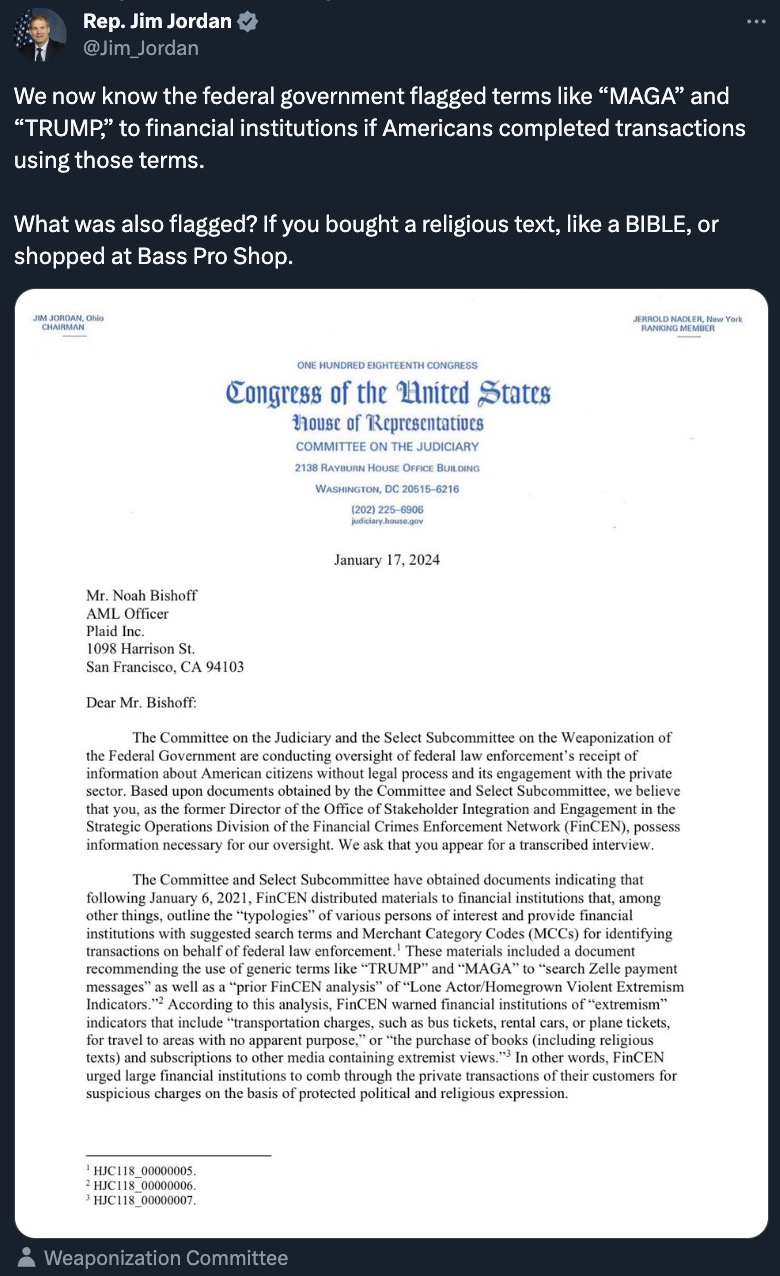by Ken Macon, Reclaim The Net:
 Investigations show feds suggested the purchase of “religious texts” could indicate “extremism.”
Investigations show feds suggested the purchase of “religious texts” could indicate “extremism.”
A revelation by the House Judiciary Committee has raised concerns about federal investigators’ intrusion into individuals’ private financial transactions. According to the committee, federal investigators instructed banks to filter customer transactions using politically related terms such as “MAGA” and “TRUMP.”
TRUTH LIVES on at https://sgtreport.tv/
This move, part of an investigation into the events of January 6, 2021, was exposed by the House Judiciary Committee.
The potential alarm does not end here, as even purchases of “religious texts” are seen as indicative of extremism in the eyes of the investigators.
The committee’s report further revealed that the investigators suggested banks filter transactions using keywords such as names of popular merchandise stores including Dick’s Sporting Goods and Bass Pro Shops, among others.

The meticulous oversight undertaken by the House Judiciary Committee and its subcommittee on the Weaponization of the Federal Government is focused on federal law enforcement’s acquisition of information about US citizens without legal procedures as well as its engagement with the private sector.
Documents acquired by the committee, according to Chair Jim Jordan, point to actions from the Treasury Department’s Office of Stakeholder Integration and Engagement in the Strategic Operations of the Financial Crimes Enforcement Network (FinCEN).
Following the events of January 6th, the department provided search terms to banks to identify transactions on behalf of federal law enforcement. These materials suggested generic keywords to search Zelle payment messages amidst other instructions.
According to Jordan, FinCEN essentially relied on large financial institutions to scrutinize their customers’ private transactions for suspicious activities that might stem from protected political and religious expression.
The committee has called Niah Bishoff, the former director of FinCEN, to appear for a formal interview on this issue. As Jordan highlights, pervasive financial surveillance of American citizens’ private transactions, coordinated with federal law enforcement, raises serious concerns about FinCEN’s attitude towards fundamental civil liberties.



